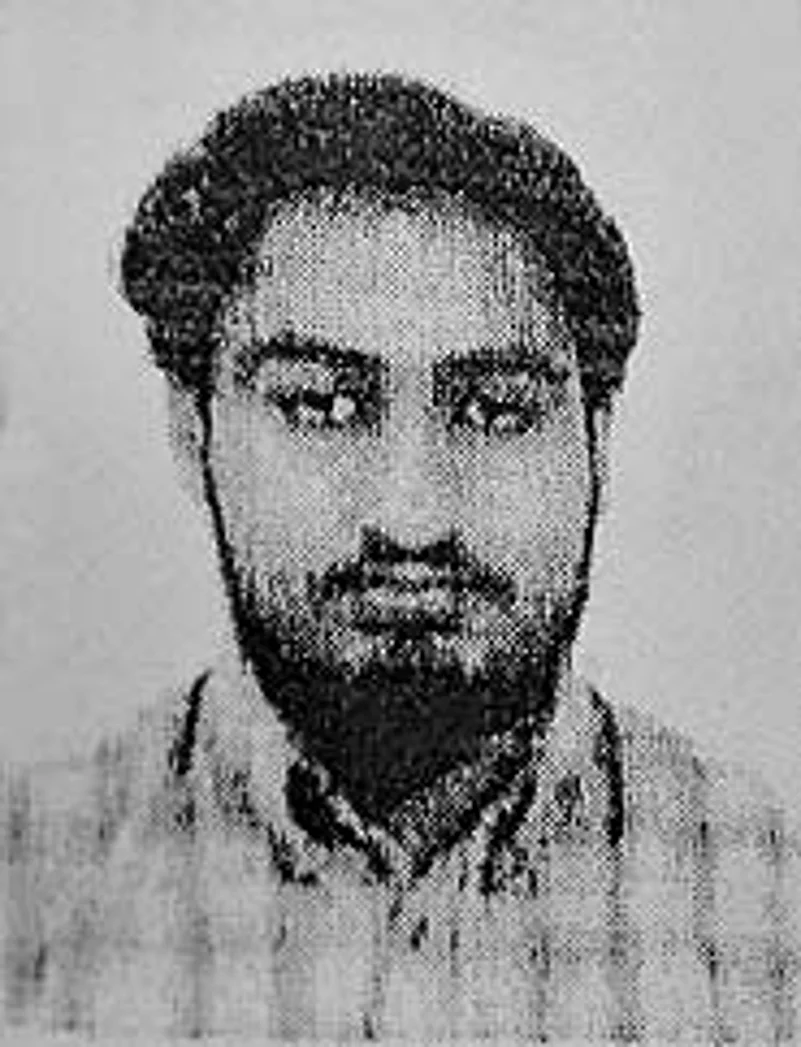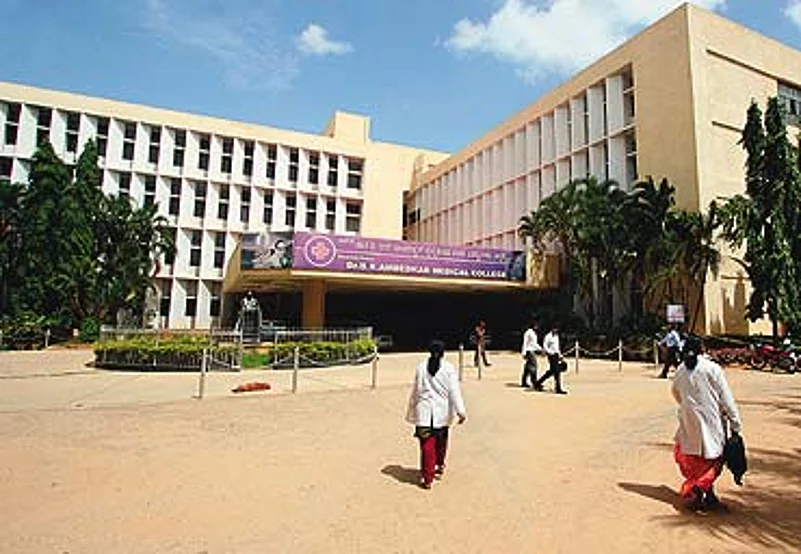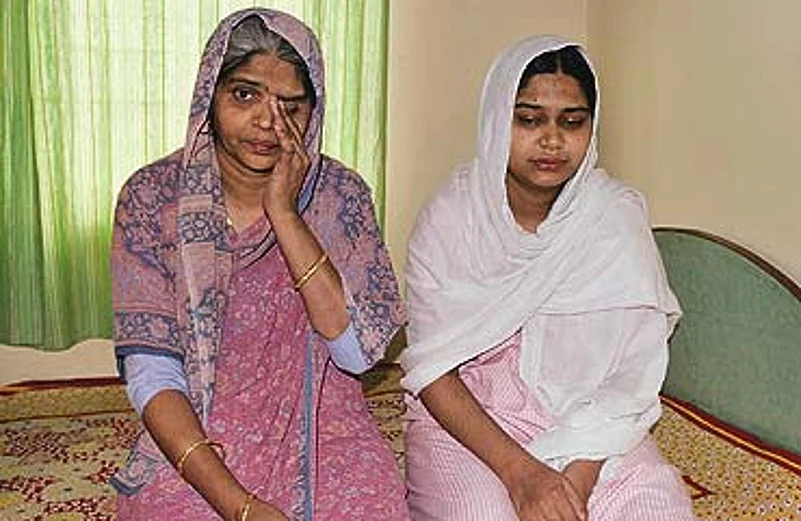- June 29: Two Mercedes cars loaded with petrol, gas cylinders and nails found in Central London. No arrests made.
- June 30: A burning jeep with gas cylinders crashes into the Glasgow airport's main terminal building.

***


Last week's attempts, though, make nonsense of all the 7/7 theories sociologists are so fondof--youngsters without job, without hope, without a place in Britain outside of home and mosque where they could hope to raise their heads in respect. The people the cops are investigating this time round are doctors well-placed financially and professionally.
No certainty yet that every doctor named is for that reason guilty; the police will not necessarily charge every one of them. But the one doctor against whom there's a watertight case is Bilal Abdullah, the Iraqi in the jeep that crashed into the Glasgow airport building. More than the July 7 bombers who had talked of their anger over Iraq, he would have reason to be angry. Early reports suggest Abdullah graduated from a Baghdad medical college in2004--a year after the invasion of Iraq led by the United States and Britain. He would have seen in that year the brutal face of the invasion, and like the rest of Iraq would have lost the dream of the invaders bringing to Iraq the sort of democracy and development they know back home. An associate of his has said in an interview to the BBC that Abdullah was "very angry about the West", that he "actively cheered the deaths of British and American troops in Iraq". A report in The Daily Mail says Abdullah's father had to wind up his medical clinic in Baghdad to flee to the relative safety of Arbil in Iraq's Kurdistan region to the north. All this could just about have everything to do with the attempt in London and the attack in Glasgow.
Through four years of occupation in Iraq doctors have been particularly persecuted, and at least half have fled Baghdad's hospitals. Occupation forces have carried out frequent raids on hospitals on suspicion that injured resistance fighters, or "terrorists" as the occupation forces call them, are given refuge and treatment. Every one of the roughly 2,000 Iraqi doctors on Britain's National Health Service knows how their fraternity in Iraqi has been been brutalised, how it has been rendered helpless in offering treatment for lack of medicines and electricity. The highly respected British medical journal, The Lancet, has reported that at least 6,50,000 additional deaths have taken place in Iraq as a consequence of the invasion. Nobody would have seen these deaths more closely than the doctors in Iraq.
In looking at last week's story as a story with an Indianconnection--because of the suspicion that has fallen on Indian doctors--we might just be missing that this really is an Iraqi story.
To the extent that there is an Indian link, it could be Indian by nationality but Iraqi incontent--assuming a shared Islamic anger over Iraq. And the extent of such an Indian link is by no means certain. The police are pursuing suspicion by association, and everyone named as a suspect is not necessarily guilty. Two Indians have been detained tillnow--Mohammad Haneef in Brisbane and Sabeel Ahmed here. Until Thursday, though, the police had not charged anyone.
Officially, the police were not naming anyone. Legally, they can name a suspect only when they bring charges. But the names appearing have come from the policenevertheless--there is no law against leaking information to the trusted media. Which is why the driver of the Glasgow jeep was named as either Khaleef or Khalid Ahmed, and his nationality declared variously as Lebanese, Iraqi andIndian--before the police indicated, without officially confirming it, that he was Indian. The media, with neither direct knowledge nor access to official information, has had to lean on sometimes conflicting leaks to 'keep up with the story'. The police have drawn the lines of an international terror plot from Brisbane to Glasgow through India and the Middle East. But we could be in for a long ride from insinuation to allegation, from suspicion to certainty, and finally, from a charge to conviction. The Heathrow 'plotters' of a year ago are nowhere near facing conviction yet.

Haneef's mother and sister in Bangalore
The case seems clear for the moment only against Abdullah. The focus of the probe has moved quickly from his known associates, and those of Ahmed, to possible origins back in Iraq. The suspected conspiracy involving non-Iraqis now means that just about every Muslim is suspect. "Such incidents always reinforce the stereotype," says Ghiyasudin Siddiqui, president of the Muslim Parliament in Britain. "That Muslims are irrational, unreliable, untrustworthy and basically insane." Concerned Muslims have asked for renewed protection around mosques, in a new indication of another feared backlash.
And given the naming of Indians as suspects, their seeking a future in Britain's health service could now become an unintended casualty. The highly skilled migrants programme of the British government was already under review, the new one ordered by Prime Minister Gordon Brown is unlikely to do any good to the purpose of Indian doctors. The National Health Service cannot survive without Indian doctors, currently about 28,000 of them are on the rolls, but these incidents could cap growth in the number. The NHS has anyway been moving towards recruiting more doctors from East Europe. Several hospitals prefer Indians for their skills and their knowledge of English, but that could change now to the advantage of East Europe.
But such professional casualties are not on the minds of many. The big fear is the real casualties that more successful attacks like this could cause. And that goes far beyond some suspicions around an Indian doctor or two, or even their involvement in such an attack. Because the ignition for the attack was notIndian--it was more Iraqi than Indian, more Baghdad than Bangalore. The bigger fear is that it may not have to be either in the future. No more than 3-4 people need to share anger enough to risk their lives. They will find ready explosive all around them. The biggest threat to world peace could turn out to be a cottage industry detonator that works.

























